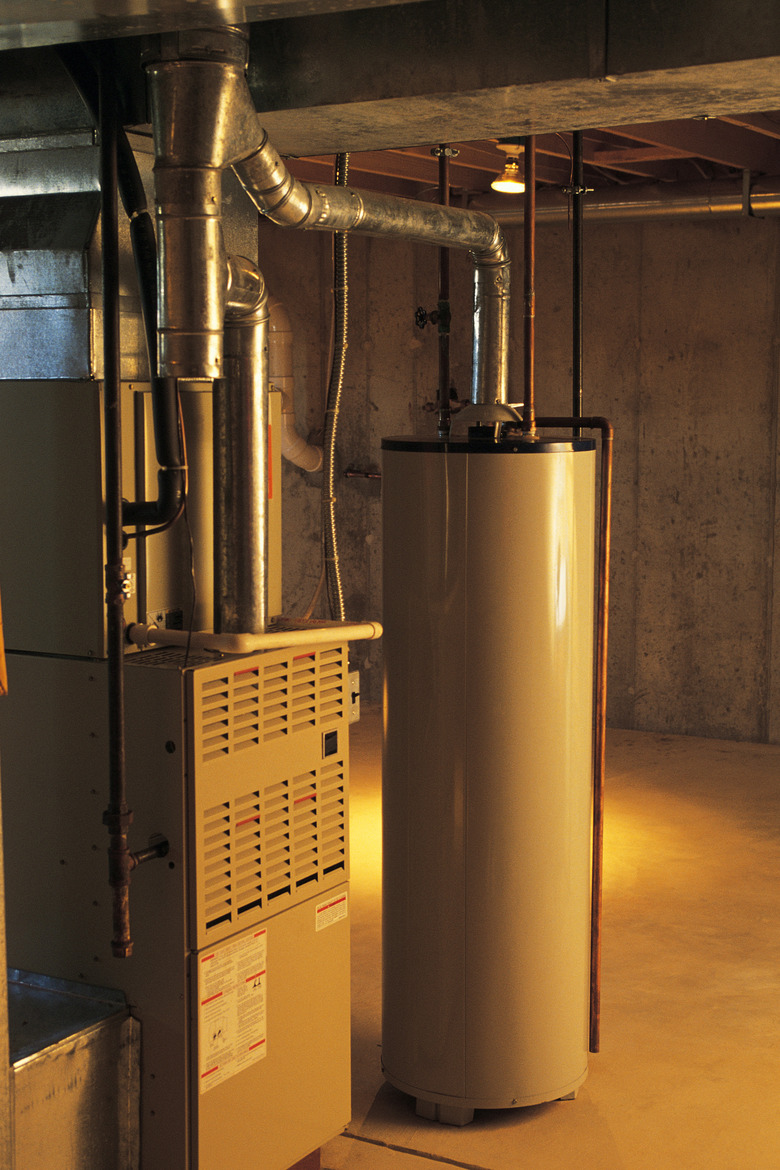The Best Type Of Flooring Choice For A Shifting Foundation
A shifting foundation typically occurs when a home is built on clay soil. When the clay gets wet, it expands; when it dries out, it contracts. These changes cause the concrete floor to heave, resulting in an uneven and changing surface. The best floor types for shifting foundations are those with some flexibility. Hard surfaces, such as tile or stone, will crack with the floor's movement. Floors that are not glued to the cement also offer more flexibility.
Carpet
Carpet is often the safest option to install over a shifting foundation, because it has few, if any seams, and has some give to it. It may over time become loose if the shifting is severe, but it won't crack or split like hard surface flooring. Do not glue it to the floor, but install it with floor tacks so it can move. A thick carpet pad helps disguise an uneven floor caused by a shifting foundation.
Vinyl Tiles
Vinyl tiles are glued to the floor, but they are more flexible than stone or ceramic tiles, which are prone to cracks on a shifting foundation. Vinyl tiles are inexpensive and simple to install. They are also easy to remove if you need to make repairs. The most likely damage you'll have with vinyl tiles is that seams may gap slightly in response to the foundation's movement. Sheet vinyl is also a good option. Leave 1/2 inch at the edges of the floor to provide room for expansion.
Engineered Wood Floors
Engineered wood floors or laminate floors may be an option on a shifting floor if they are laid over the floor using a floating floor installation. These floors are not glued or nailed in place, but lock together to float over the subfloor. Use a thick underlayment, such as cork, to hide minor imperfections in the floor and install a vapor guard so moisture doesn't reach the flooring material. Contact a flooring professional before installing engineered wood or laminate floors over a shifting foundation. These floors are not as forgiving as carpeting or vinyl tile.
Considerations
If you have a shifting foundation, the choice of flooring is probably the least of your concerns. Shifting foundation problems are exacerbated after periods of drought or flood and can lead to cracks in the foundation. If left untreated, these cracks can cause your home to become structurally unstable, making it unlivable. Repairs can cost thousands of dollars and you may be unable to sell your home. Hire a structural engineer to do a thorough analysis of your home. Some shifting foundations may be structurally stable, but only an engineer can make that assessment. Floor-leveling compounds or mudjacking offer only temporary relief for a shifting foundation and may exacerbate drainage problems.
